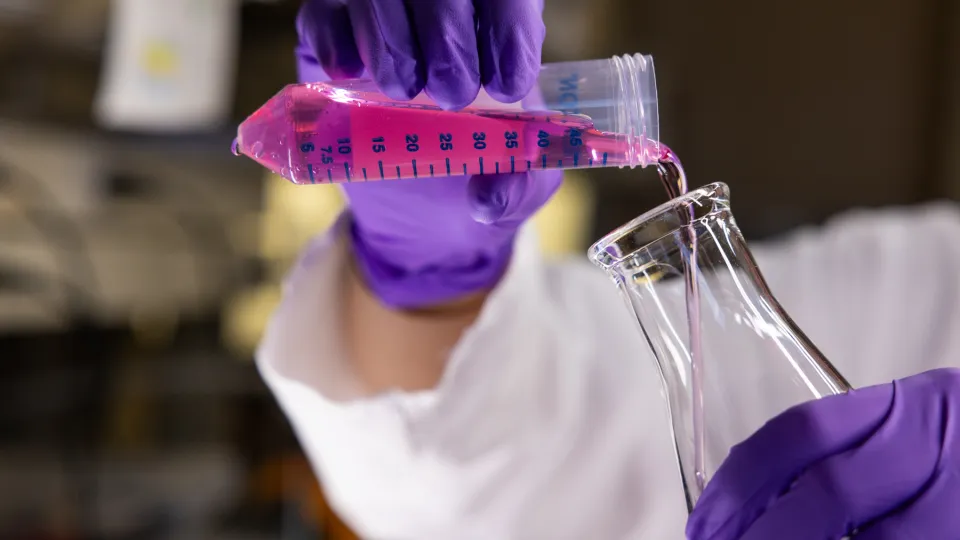News Brief
Possible Strategy for Preventing Artery Narrowing
March 19, 2024
Both atherosclerosis (buildup of cholesterol plaques in artery walls) and use of stents to widen coronary arteries can trigger an excessive injury response that can narrow arteries even further. A drug that selectively limits this vascular repair response could be extremely useful for keeping diseased or damaged arteries open.
Gustavo Oliveira-Paula, Ph.D., Dario F. Riascos Bernal, M.D., Ph.D., and Nicholas E.S. Sibinga, M.D., have discovered that vascular repair is promoted by the interaction of two signaling pathways that contribute to normal vertebrate development: the Wnt/beta-catenin and sphingosine-1-phospate (S1P) signaling pathways. More specifically, they found that Wnt/beta-catenin C-terminus activates the S1P pathway by inducing expression of the S1P receptor 1. Using mouse models, the researchers showed that a drug known to block the Wnt pathway effectively inhibits activation of the S1P pathway—preventing an excessive injury response and reducing artery clogging due to atherosclerosis and restenosis following arterial injury. The drug’s success suggests a new approach for treating occluded arteries or preventing them from narrowing. The study was published online on March 13 in Science Advances.
Dr. Sibinga is professor of medicine and of developmental and molecular biology, and is the Charles and Tamara Krasne Faculty Scholar in Cardiovascular Research at Einstein, and is a member of the National Cancer Institute–designated Montefiore Einstein Comprehensive Cancer Center. Dr. Riascos Bernal is assistant professor of medicine and of developmental and molecular biology at Einstein. Dr. Oliveira-Paula, first author on the paper, is an instructor of molecular pharmacology at Einstein.
Albert Einstein College of Medicine has a patent application related to this research and is seeking licensing partners able to further develop and commercialize this technology. Interested parties can contact the Office of Biotechnology and Business Development at biotech@einsteinmed.edu.



